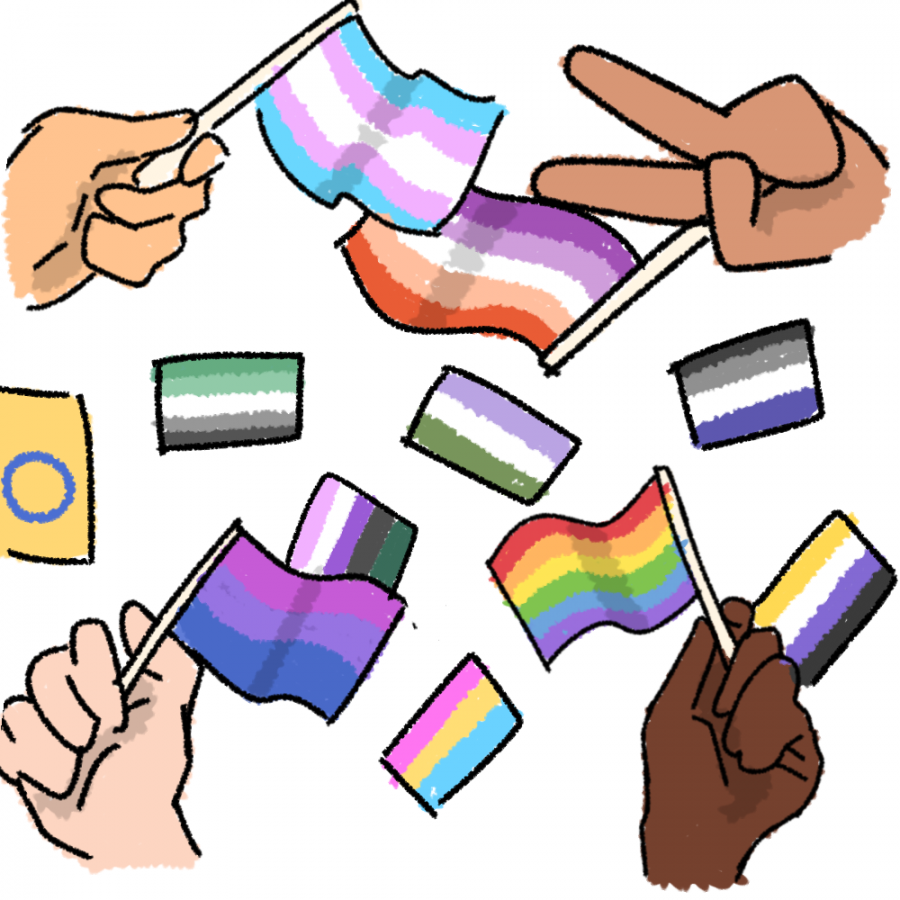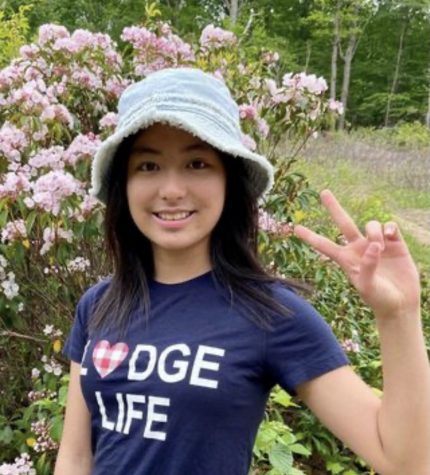Sexuality & Gender Alliance perseveres through online challenges
MCPS’s gender identity policy requires teachers to withhold information from parents about a student’s gender identity. A transgender therapist has sided with parents in filing a brief opposing the policy.
December 29, 2020
Almost all students at RM can probably agree that clubs are one of the defining characteristics of the school. Out of the hundreds of clubs that generations upon generations of students have created, the Sexuality and Gender Alliance (SAGA) is one that is often overlooked.
SAGA was originally created to be a place for LGBTQ+ students to discuss and learn more about LGBTQ+ activism. Club president Simon Braunstein said, “I think it’s just extremely important to me as somebody who is a part of the [LGBTQ+] community that there’s a space for the community at school. Sometimes it’s very hard to find other people who are like you just around in class.”
Club meetings, which are held every Wednesday afternoon at 4 p.m., are usually spent learning about different LGBTQ+ related topics, discussing meaningful issues or just having fun. “And if people don’t want to do [a] presentation that day, or they have some other issue that they want to talk about, then then we’ll do that instead. So we’re very flexible,” one of the club leaders, Sebastian Gagliardi, said.
Topics that are covered in the meetings range from LGBTQ+ history to binding safety, and from social media to headcanons. “I’ve learned a lot of things, like I pick up little things from each PowerPoint or presentation that we do,” Gagliardi said.
However, due to COVID, numerous challenges have emerged for SAGA. For one, member turnout has been relatively low. “Even though we try and get the information out there—we have a Zoom link and all that—it’s harder than it was in person,” Gaglidardi said. “The main challenge for us is participation, because it is a lot harder for us to get out when our meetings are and what will be happening in them. Sometimes people don’t have the time,” Braunstein echoed.
Another issue that SAGA has faced this year has been the delay of their previous projects. “Before COVID, we were trying to go to [the DC Capital Pride Parade]. We were registering for it when COVID struck,” Gagliardi said.
The club has already begun planning for the return to school. “It would be a lot of fun to get a lot more community-based, like socialization and games and activities and stuff like that, once we’re back in the classroom,” Braunstein said. “So for instance, I have a button maker and I brought it in last year, so I could bring it again this year. And we can make pins.”
SAGA is not just for LGBTQ+ students; in fact, anyone can join. “Our main goal is to create a safe space for LGBTQ+ students, and also generally having a space where we can all communicate and be with like-minded people. Allies are also totally welcome,” Braunstein said.
The Zoom link for anyone who wants to join is available on SAGA’s Instagram, @rmhs.saga.



